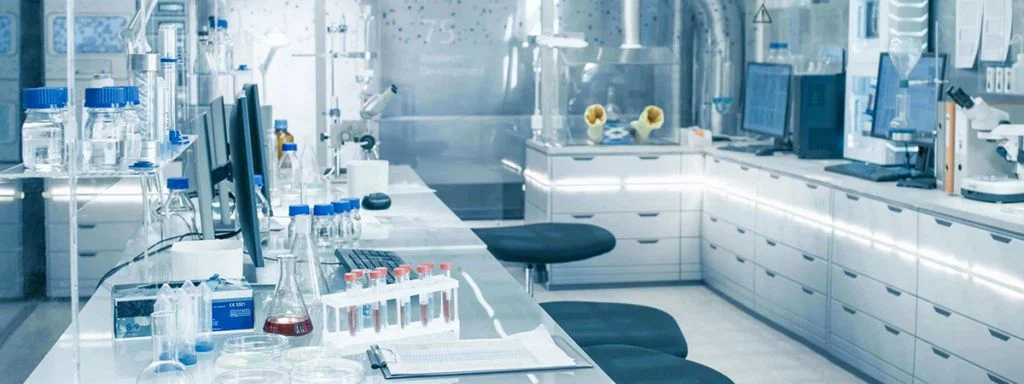Understanding the Importance of Reliable Medical Lab Equipment
In healthcare, the ability to provide accurate, timely, and precise diagnoses is critical to ensuring proper patient care. Medical laboratories are at the heart of this process, providing the data healthcare professionals need to make informed decisions about a patient’s treatment plan. The quality and reliability of the equipment used in these laboratories are paramount.
Reliable medical lab equipment not only contributes to better patient outcomes but also helps healthcare facilities operate efficiently and meet regulatory standards. This article will explore why reliable medical lab equipment is so important and how it impacts both the healthcare facility and patient care.
1. Ensuring Accurate Diagnosis
One of the most vital reasons for relying on high-quality and reliable medical lab equipment is the accuracy of diagnostic results. Medical lab equipment performs a wide range of functions, from simple blood tests to complex genetic analysis. If the equipment malfunctions or provides inaccurate results, it can lead to incorrect diagnoses, which in turn can result in inappropriate treatments.
For example, a faulty blood gas analyzer could lead to an inaccurate reading of a patient’s oxygen levels, which might delay essential interventions. Similarly, an unreliable clinical chemistry analyzer might misinterpret glucose or cholesterol levels, leading to misdiagnoses in conditions like diabetes or cardiovascular disease. Accurate results are necessary for healthcare providers to make proper treatment decisions, and this all depends on the reliability of the lab equipment.
2. Enhancing Patient Safety
Reliable lab equipment directly contributes to patient safety. Medical tests often serve as the foundation for treatment decisions, and if equipment provides incorrect or inconsistent results, it could put the patient at significant risk. Whether it’s analyzing blood samples, detecting infections, or measuring vital biomarkers, the reliability of lab equipment ensures that healthcare providers are working with the best information available.
Moreover, medical lab equipment that is well-maintained and functioning correctly can reduce the likelihood of errors. Routine maintenance and calibration of equipment are key to ensuring long-term performance. Faulty equipment can compromise not only the safety of individual patients but also the integrity of the entire healthcare facility’s operations.
3. Increasing Efficiency in the Lab
Efficiency is essential in any medical laboratory, especially when it comes to high-volume healthcare settings. Time-sensitive tests—such as blood cultures, urgent pathology screenings, or emergency electrolyte analyses—require equipment that can deliver results quickly and reliably. If equipment breaks down or provides inconsistent readings, it can cause delays in processing and, ultimately, delay treatment for patients who need it urgently.
Reliable medical lab equipment streamlines workflow, reduces downtime, and ensures that lab personnel can complete tests efficiently. Automation in laboratory equipment, such as automated chemistry analyzers or blood cell counters, enhances speed without sacrificing quality. This allows healthcare providers to deliver care more effectively, improving both patient outcomes and operational efficiency.
4. Maintaining Compliance with Regulatory Standards
Healthcare facilities are governed by a range of regulatory standards and compliance requirements to ensure patient safety and quality of care. These include regulations from entities like the Clinical Laboratory Improvement Amendments (CLIA), the Food and Drug Administration (FDA), and other regional or national regulatory bodies.
Reliable medical lab equipment is essential for maintaining compliance with these standards. Equipment that fails to meet the regulatory criteria could lead to audits, fines, or even the shutdown of operations. Additionally, improper equipment maintenance or malfunctioning devices can jeopardize the certification status of the laboratory, causing legal and financial repercussions for the healthcare facility.
By choosing high-quality and compliant lab equipment, healthcare facilities can avoid these issues and ensure they meet the necessary standards for safe and effective care.
5. Reducing Long-Term Costs
Although reliable medical lab equipment often comes with a higher upfront cost, it can actually save healthcare facilities money in the long run. Equipment that is reliable and durable requires fewer repairs and replacements, reducing the need for ongoing repairs or emergency replacements that can be costly.
Furthermore, reliable equipment tends to be more energy-efficient, which can lower operating costs. Over time, the reduction in maintenance expenses and the potential for fewer equipment breakdowns lead to significant savings. Healthcare facilities can also avoid the cost of re-testing patients due to equipment failure, which can be time-consuming and costly.
6. Improving Staff Productivity and Satisfaction
Lab technicians and healthcare professionals rely heavily on medical equipment to perform their tasks. When equipment is unreliable or difficult to use, it can slow down their workflow, increase stress, and cause frustration. This can affect the overall productivity of the team and lead to burnout.
Reliable and user-friendly equipment improves productivity by reducing the likelihood of equipment failure, which means less time spent troubleshooting or recalibrating instruments. Additionally, when staff are confident in the reliability of their tools, they are able to focus on delivering high-quality patient care, which leads to greater job satisfaction and overall well-being.
7. Supporting Research and Innovation
Reliable medical lab equipment is essential not only for routine diagnostic testing but also for research purposes. Medical research and clinical trials often require precise measurements and accurate results. When conducting experiments or analyzing patient data, reliable equipment is vital to ensuring that the results are valid and reproducible.
Innovative diagnostic tools and technologies often rely on cutting-edge equipment that pushes the boundaries of medical knowledge. Laboratories that invest in reliable, state-of-the-art equipment can contribute to breakthroughs in patient care and clinical outcomes, further advancing medical science.
8. Ensuring Consistency Across Multiple Locations
For healthcare organizations with multiple branches or facilities, ensuring consistency across locations is critical. Laboratories in different locations may be tasked with performing similar tests and procedures. Using the same reliable equipment in each location ensures uniformity in test results, which is essential for tracking patient progress and comparing outcomes across different sites.
When labs use the same equipment across multiple locations, it also simplifies training and quality control, as technicians can become proficient in the same machines and systems, leading to consistent results and processes.
9. Fostering Trust in Healthcare
The reliability of forensic lab equipment directly influences the trust patients have in the healthcare system. Patients trust that the medical tests they undergo will be accurate and will help their healthcare providers make the best decisions for their health. When equipment fails, the integrity of the results is compromised, which can lead to mistrust and patient dissatisfaction.
In turn, this can affect the reputation of healthcare facilities. Patients are more likely to return to or recommend a facility where they know the lab equipment is reliable and provides accurate, timely results. A healthcare provider’s reputation is built on trust, and reliable lab equipment is a key factor in maintaining that trust.
Conclusion
Reliable medical lab equipment is the cornerstone of effective healthcare. From accurate diagnoses to timely interventions, the equipment in medical laboratories plays a critical role in patient care. The quality, reliability, and efficiency of medical devices and instruments directly impact patient safety, staff productivity, and the financial health of healthcare facilities.
Investing in high-quality, reliable equipment not only ensures the best care for patients but also boosts the efficiency and compliance of the healthcare facility. It minimizes downtime, reduces errors, and supports the delivery of accurate results, all of which are necessary for maintaining the highest standards of healthcare. By prioritizing reliable medical lab equipment, healthcare providers can enhance their services, improve patient outcomes, and foster trust in their facility.













